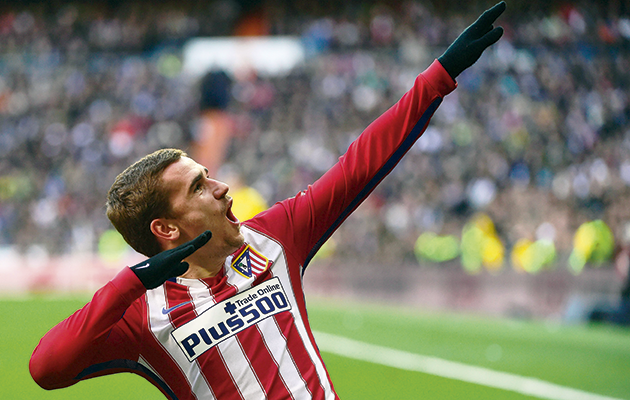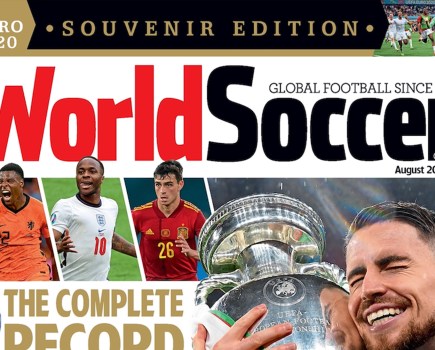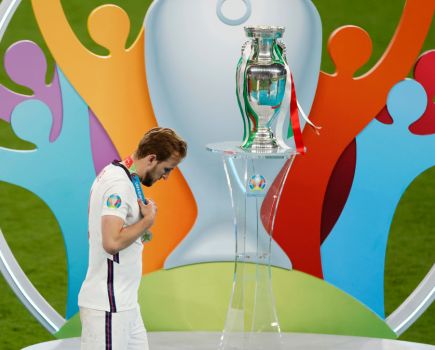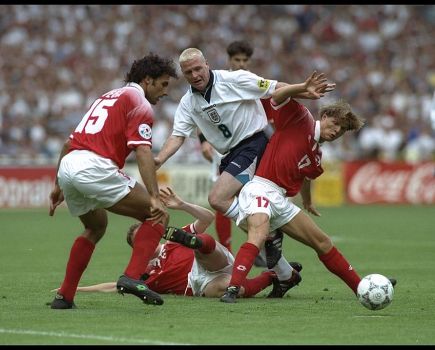On Antoine Griezmann’s forearm there is a tattoo in Arabic. It is a quote from a famous French writer who shares a first name with the Atletico Madrid and France striker.
Author of world-famous story The Little Prince, Antoine De Saint-Exupery effortlessly captures life’s awesome wonder. No wonder, then, that Griezmann decided to ink himself with Saint-Exupery’s charming line: “Fais de ta vie un rêve, et fais de ton rêve une réalité”, meaning “make your life a dream, and make your dream a reality”.
If that has been Griezmann’s mantra, then so far so good. At the age of 25, most of his dreams have already come true. A leading light in France national coach Didier Deschamps’ squad and a hero in his adopted homeland of Spain, with 1.8million followers on Twitter, Griezmann has already shown why he is tipped to be one of the big stars of Euro 2016.
“He always knows how to hurt the opposition,” says Diego Simeone, his coach at Atletico – and the animated Argentinian is not kidding. In front of goal, Griezmann has the kind of ice in his veins that others can only dream of and is a player who never needs asking twice to set the net bulging.
Griezmann is no physical, bullying presence smashing his way onto the goalscoring leader board, though. He relies on blistering pace, all-round athleticism and the audacity to try his luck from anywhere and everywhere.
“I try to play between the lines, to get on the front foot and attack defenders like Messi,” he says.
These are the skills that have really excited Deschamps, not to mention the ever-growing number of French football fans who are loudly singing his praises.
Ever since he first started kicking a ball with his local team, l’Entente Charney Macon 71, at the age of six, questions have been asked about Griezmann’s physical suitability for football. After joining bigger club UF Macon two years later, the young Antoine had numerous trials at professional French clubs, only to be sent packing each time for being too frail.
It was at the age of 13 that his luck finally turned as he was spotted by Real Sociedad playing in a tournament in Paris. Although he was wearing the colours of Montpellier that day, the Basque club’s scouts were impressed enough by what they saw and offered the teenager a two-week trial, before deciding to take a chance on him and start him out on the road to a professional career.
Sociedad hail from San Sebastian, a city of 186,000 inhabitants that hugs the French border up in the north east of Spain. Aware that Griezmann was still young, and that his home town of Macon was situated in the east of France, over 500miles away, the club placed him in a French school just over the border in Bayonne to help him acclimatise to such a big change in life.
But at the start of the 2007-08 season, and after two years of hard work from the youngster, Sociedad decided Griezmann was ready to make the step up to the cub’s reserve team. He went on to perform well enough over two campaigns in the Spanish third tier to be awarded his first professional contract at the age of 18.
Griezmann did not have to wait long to make the step up to first-team football, either. Sociedad’s Uruguayan coach at the time, Martin Lasarte, had his hands tied a little bit because of an unexpected number of injuries, so he added the Frenchman to his pre-season squad for the club’s 2009-10 second-division campaign.
It proved to be a good move. Make that better than good, actually. Griezmann scored four times in five pre-season games to make the Sociedad coaching staff sit up and take notice.
He went on to make his first-team debut as a 79th-minute substitute in a 2-0 Spanish Cup loss to Rayo Vallecano in September 2009. Four days later he again came off the bench, in a goalless league draw with Murcia, before finally getting the nod for his first league start, against Huesca on September 27. Real won 2-0 and Griezmann, wearing the number 27 shirt, found the back of the net with a fine angled right-foot drive from just outside the penalty area.
“I was convinced that he was ready when I brought him through to the first team,” says Lasarte, who most recently coached Universidad de Chile. “He made mistakes, as any youngster does, but he always had a big personality and loads of confidence.”
By the end of the 2009-10 campaign, Griezmann had established himself as a first choice, becoming an important part of the Sociedad team that clinched promotion as champions, ahead of Hercules and Levante. With Lyon, Manchester United and Liverpool reportedly tracking him, the club moved quickly to tie him to a long contract through to 2015.
Those eye-catching performances in Spain had not gone unnoticed in his native country either, and in July 2010 Griezmann was called up by the French under-19s coach, Francis Smerecki, for that summer’s European Championship on home soil.
After scoring twice in a 5-0 rout of Austria in the group stage, Griezmann played a big part in the tournament as France went on to beat Spain 2-1 in the Final in Caen, in front of over 20,000 spectators. And even though Griezmann had to come off injured at half-time, he knew he had made his mark. His ambitions, however, were already much greater.
“That was a big moment for me,” he recalls. “But I said to myself at the time, ‘OK, you’re in the under-19s now, but you need to push on to the national team, to keep working hard and keep believing in the big dream.’”

Antoine Griezmann in action for the France Under-20 team.
Back in club colours, he made his top-flight debut with Sociedad in a 1-0 win against Villarreal in August 2010. But he had to wait until the eighth match of the campaign, a 3-0 home win over Deportivo La Coruna, to get his first goal. Clearly thrilled, Griezmann decided to celebrate by jumping into the driver’s seat of a promotional car parked on the running track that surrounded the pitch. His team-mates soon followed him and the celebration quickly became a YouTube sensation.
Griezmann finished his first campaign in La Liga having made 37 league appearances, scoring seven goals, and establishing a welcome pattern of missing very few games. Despite his slight frame, he has had a happy knack of avoiding serious injury to date and has consistently been fit to appear on the team sheet.
In the following two campaigns with Sociedad, in 2011-12 and 2012-13, the Frenchman established himself as the club’s leading striker. With French coach Philippe Montanier in charge after arriving from Valenciennes in June 2011, Griezmann signed a contract extension at the start of the 2012-13 season that tied him to the club until 2016.
But Sociedad started the campaign badly, losing six of their first 10 games and finding themselves in the relegation zone. Leaning on Griezmann as his leading striker, Montanier nonetheless managed to turn Sociedad’s season around. After a narrow 4-3 defeat at Real Madrid in January 2013, the team then went on a 15-game unbeaten run.
When Griezmann notched the only goal of the game in the last match of the season against Deportivo La Coruna, Sociedad clinched a remarkable fourth-place finish to qualify for the Champions League play-off round. His personal achievements were equally impressive as he became the fifth-youngest player to have made 100 appearances in La Liga, scoring 11 goals in all competitions throughout the season and weighing in with five assists, his best tally to date.

Griezmann’s goal at Deportivo secures a 1-0 win for Sociedad and ensures Champions League football.
Yet while all was rosy at club level, Griezmann suddenly found himself in hot water on the international stage. His three goals in five games for the French under-21s weren’t enough to guarantee the team’s qualification for the 2013 Euros as France crashed out in the play-offs against Norway.
And it soon emerged in the French media that Griezmann had joined four other players – Yann M’Vila, Chris Mavinga, Wissam Ben Yedder and M’Baye Niang – on an unauthorised jaunt from the squad hotel in Normandy to Le Crystal nightclub in Paris, over 200km away, just three days before the crucial Norway match. The French Football Association took a dim view of the matter and suspended Griezmann from all national-team activity until December 31, 2013.
They say the best way for a sportsman to answer his critics is out on the pitch and Griezmann was clearly on a mission as the 2013-14 season got under way.
If he was out to make a point, then he could not have made it any clearer than by scoring in an early Champions League play-off game with an athletic overhead kick from the edge of the penalty area. That the goal was in France, against Lyon – the team he had followed as a boy – was nothing short of a masterstroke in terms of increasing his media profile.
Despite Sociedad finishing bottom of their Champions League group, it still proved to be Griezmann’s breakout season. He scored 20 goals in 49 games as Sociedad finished a creditable seventh in La Liga. And once his international ban was lifted, Deschamps wasted no time in awarding him a first senior cap, in a 2-0 win against Holland at the end of February 2014.

Griezmann celebrates scoring for France.
After yet another scintillating domestic season, it was no surprise that Griezmann made the French squad for the 2014 World Cup in Brazil. After scoring three goals in warm-up games, he went on to appear in all five World Cup games, either starting or from the bench. And while he failed to score or grab an assist, he still headed home with a reputation as one of world football’s most promising young stars tucked in his back pocket.
Atletico Madrid already knew all about his potential and on July 27 they announced his transfer on a six-year contract for the €30m buy-out clause fee set in his previous deal. Atletico coach Simeone was quick to tell the world of his joy, claiming: “Antoine’s a brilliant player. He’s really quick and he’ll give us lots of options in attack.”
If the big price tag and such ringing endorsements were weighing on the player’s mind, then Griezmann did not show it. Despite a slow start to the season, in which Simeone introduced him gradually into the starting line-up with 15 minutes here and there, the 2014-15 campaign saw the new boy deliver his best-ever stats, with 25 goals in 54 games.
Perhaps even more impressively, Griezmann notched 22 of those goals in just 37 Liga appearances. These included a first Atletico hat-trick in a 4-1 win at Athletic Bilbao and three consecutive braces – against Malaga, Deportivo and Elche – in April 2015 that saw him named in the Liga team of the month.
Griezmann’s first season in Madrid succeeded in elevating him to the position of a genuine superstar, a status that was further confirmed just ahead of this season when fans voted via the Internet for him to feature alongside Lionel Messi on the French cover of the leading computer game FIFA16.
On the field, this term has once again seen Griezmann in incredible form. With over two months to play, he had already notched 20 goals, making him Los Colchoneros’ top scorer by a huge distance from midfielder Saul, who had chipped in with just six.

Talent…Griezmann volleying home against Getafe.
Unsurprisingly, and despite Simeone having admitted his astonishment that Griezmann wasn’t included on the 23-man shortlist for the Ballon d’Or award in October, there is no shortage of admirers among the very biggest and best European clubs.
“I’ve never been called or sent a message by any club and I’ve never really discussed anything with my agent,” says Griezmann diplomatically. “But the club recently offered to improve my salary and I was happy to accept.”
All the same, Chelsea have supposedly been making eyes at him for a while as pundits everywhere continue to purr about just how good Griezmann really is.
“I’ve already said that Antoine Griezmann will be considered one of the top five players in the world by the end of this year,” says Spanish football analyst Guillem Balague. “And I haven’t seen anything to make me change my mind.”
Griezmann himself says: “If I want to be the next Falcao or the next Aguero at Atletico, I know I’ve still got a lot to do. But the coach gives me a lot of confidence, and tells me that I’m an important player. But he also says I have to do better than I’ve ever done before.”
Imagine that. If there really is still more to come from Antoine Griezmann, then that will put the fear of God into European defenders and joy into the hearts of football romantics around the world.
By Howard Johnson







